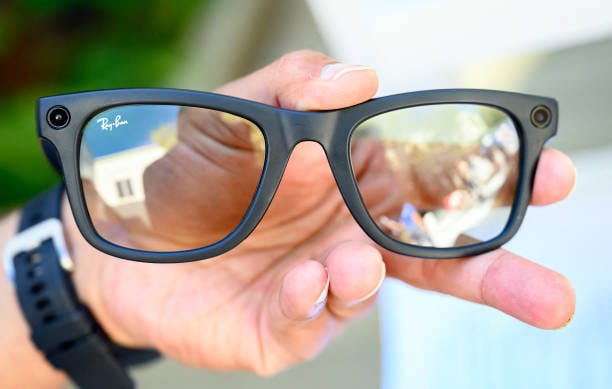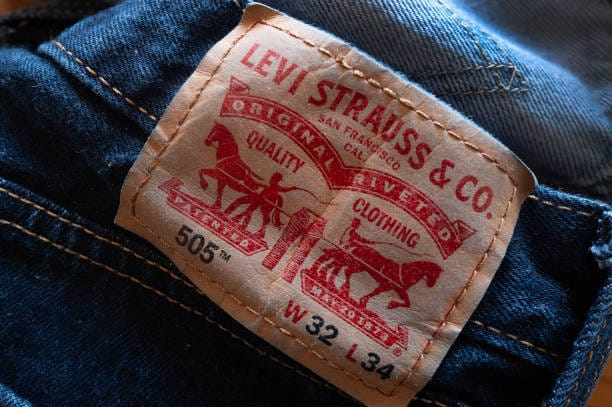Government
The US federal deficit passes $1.8 trillion in 2024

NextGen News
Mike Phillips once said “Money will come when you are doing the right thing”, which is probably why the US is almost $2 trillion in debt this year. According to a new report from the Congressional Budget Office (CBO), the US recorded the biggest annual federal deficit in three years, piling up $1.83 trillion in the last fiscal year.
A deficit of this magnitude in an otherwise benign economic environment is unprecedented.
How did it get to this point?
The government spent $950 billion (up 34%) on interest payments (borrowing costs) in the past year, more than the entire defense budget of the United States ($826 billion) or Medicare ($869 billion).
Most of the other money went to Social Security and Medicare as more Americans became eligible for retirement benefits.
The federal government spent $6.8 trillion in fiscal year 2024, 10% more than the previous year. Some of the damage was dampened by an increase in revenue, which totaled $4.92 trillion.
This was largely thanks to an 11% increase in individual income taxes and a 26% increase in corporate income taxes.
Why is it so high now?
Federal deficits increase substantially at times of war, during financial crises, or, most recently, during pandemics. This has not happened within the past year, yet, the deficit is up 13% from last fiscal year.
The government debt accounted for one-third of the US GDP in the early 1990s. By the year 2027, debt is expected to reach a record-breaking 106% of GDP.
Will it ever go down? Probably not, especially in the coming years. Both presidential candidates, Kamala Harris, and Donald Trump, have barely mentioned closing the deficit. Additionally, their spending-heavy economic policy proposals will add trillions to the already $35.7 trillion national deficit, according to a nonpartisan organization.
Technology
Harvard students used Meta’s smart glasses to kill privacy

Josh Edelson / AFP via Getty Images
Leave it to Gen Z to find more ways not to ask for someone’s number. Two Harvard students used facial recognition software and Ray-Ban Meta Smart Glasses to quickly “reveal anyone’s personal details” and identify them with just a glance.
The technologies utilize AI to instantly see people’s identities, showing their names, phone numbers, addresses, and publicly available information. The students said the “demo” was a way of drawing attention to the privacy issues that are emerging with widely available consumer technology.
some dude could just find some girl’s home address on the train and just follow them home,
How does it work?
Anh Phu Nguyen and Caine Ardayfio described how they constructed the device, which they call I-XRAY, in a video that was uploaded on X (watch here). Here’s the basics:
Using the glasses, the program takes pictures of random individuals and then uses a publicly accessible facial recognition search site, such as PimEyes, to identify the individuals.
A large language model (LLM) is then used to search the internet and retrieve the individual's personal data.
Then, in just a couple of minutes, one can acquire someone's address, photos (of them and their parents), phone number, and other invasive details.
In the demo, you can see Nguyen and Ardayfio walk around campus and identify fellow students “just from looking at them”, pulling up their private info in real time. Even more disturbing, they are also shown striking up conversations with total strangers, acting as though they know them based on data pulled from the tech.
A massive privacy concern
In a document explaining the demo, Nguyen and Ardayfio say the purpose is “not for misuse,” and that they will not be releasing the technology but instead made it to show how invasive tech can be made using current technologies like LLMs and smart eyewear.
Meta stated that any camera might be used for similar information collection when 404 Media contacted it about the concept. That’s calming.
Additionally, Meta asks users to "respect people's preferences" and to record video, livestream, or take pictures with clear gestures or voice controls. But will people do that? No.
Although smart glasses have always raised privacy concerns, they are now far more discrete and resemble regular eyewear. And while acceptance of smart glasses depends on that fact, it also makes it more difficult for people to recognize when someone may be hiding a camera on their face.
Going forward: With the correct tools, like LLMs, collecting data this quick and easy was “previously not possible.” However, there is a counter. Nguyen and Ardafiyo include databases that let you opt out for reverse face search and people database search in their document.
Automotive
This car company can’t seem to get anything right

Scott Olson / Getty Images
Right now is probably the worst time to buy a Jeep. Stellantis had a disastrous third quarter, according to its earnings call last week. The auto giant reported that sales across all 14 of its car brands bombed last quarter, continuing the yearslong nosedive.
Stellantis said overstocked inventories, expensive merchandise, and high-profile departures have caused them to lose demand as they raise prices more than other auto brands.
Slip and slide
This marks the fifth quarter in a row Stellantis has reported falling sales, and the rest of the numbers aren’t looking good either:
Between July and September, US sales decreased by 11.5% from the previous three months and by nearly 20% from the prior year.
The US market typically accounts for over fifty percent of Stellantis's earnings.
The auto giant’s inventory is down 11.6%, as it was able to sell a sufficient amount of vehicles, but dealerships still have more cars than they know what to do with.
Ram's inventory of unsold trucks is over twice as large as the industry average (Dodge and Jeep are close to the same).
Dodge and Chrysler were the main perpetrators behind Stellantis’s nosedive, as sales of both brands tanked 40% in Q3. Every other brand under its umbrella also reported negative growth, except for Fiat (who is buying them?).
Wrong move: Stellantis recently focused on selling bigger, more expensive vehicles right at a time when consumers want the exact opposite.
The CEO is in the hot seat
Stellantis CEO Carlos Tavares admitted he made “arrogant” mistakes and was told “[he] created this problem” by dealerships.
In an open letter last month, dealerships across the US accused Tavares of prioritizing short-term financial targets (which warranted a 50% salary increase) over the cost of the company's long-term viability.
Investors aren’t happy either… for the same reason the dealerships aren’t. A pile-up of inventory, declining sales, and manufacturing issues have caused investors to lose faith, resulting in the company’s stock plummeting 41% this year.
Earn Free Gifts 🎁
You can get free stuff just by referring friends and family to our newsletter. Sweet deal right?
1 referral - NextGen News digital badge ✅
5 referrals - $5 gift card 💳
10 referrals - Luxury satin pillowcase 🛏
20 referrals - Carhartt beanie (of your choice) 🤠
{{rp_personalized_text}}
Copy and paste this link to share: {{rp_refer_url}}
Grab Bag
Uber wins court case because of a pizza order

Nathan Stirk / Getty Images
Maybe we should start thinking twice about clicking “yes” on the terms and conditions. A couple's daughter prevented them from suing the ride-hailing service after they were severely injured in an Uber ride. Why? Because she agreed to the app’s terms and conditions when trying to order pizza.
In the court of public opinion, nobody wants these terms.
What happened?
According to a complaint filed by John and Georgia McGinty, their Uber driver ran a red light, crashed the car, and left the pair with permanent disabilities, causing them to miss work.
However, when their 12-year-old daughter ordered pizza using her mother's Uber Eats account two months ago, she hit “agree” to the terms and conditions.
Why does that matter? A New Jersey appellate court ruled an arbitration clause in the Uber Eats app’s terms and conditions (which the child obviously did not know of) waived the couple’s right to sue the tech giant.
The arbitration clause states that “disputes concerning auto accidents or personal injuries” must be settled outside of court.
Even before the pizza order, Uber claimed Georgia McGinty had accepted other arbitration clauses on her rideshare account.
The couple stated they were “really shocked” that “the court could interpret things the way that they did” and plan to appeal the decision.
“I remind you, we’re talking about our constitutional right to a jury trial,”
This has happened before: Just in August, Disney was protected from a wrongful death lawsuit by a man who claimed his wife died when one of the theme park's restaurants served food she was allergic to.
The entertainment giant said it was because they agreed to the terms and conditions of their Disney+ account and thus waived their rights to take them to court.
Levi’s jeans got more business… after it stopped selling khakis

Scott Olson / Getty Images
Never would’ve thought that people would go to a jeans store to buy jeans. Levi Strauss said it may sell Dockers, the outdoorish brand whose sales have fallen, and cut its full-year growth projections from up to 3% to just 1% last week.
Stop the sag
Dockers, a khaki clothing retailer founded by Levi's almost 40 years ago, had its sales fall 15% in the most recent quarter, extending a run of poor results that probably speaks to our inclination for comfort over practicality.
Even while the Levi's brand saw a 5% rise in sales (its largest increase in two years) the company's overall revenue remained largely stagnant at about $1.5 billion.
CEO Michelle Gass said the brand “has underperformed for some time” and that the company wants to pivot focus toward its denim and Beyond Yoga brands (which has grown 19%).
Down for denim: Levi’s margins grew 4.4%, meaning the cost of making the product and how much it’s selling it for, increased. Direct-to-consumer revenue also shot up 10%, which Gass said was “driven by strong performance in brick-and-mortar retail” strategies like store expansions.
It’s safe to say Levi’s is doing alright for now, at least as long as they keep getting orders from the Beyonce album and new marketing campaign.
How did you like today's newsletter?
Fast Facts

Airplane! / Paramount Pictures
Adult Airline: On a recent Qantas flight from Sydney to Tokyo, every passenger was forced to watch Daddio, a sexually explicit R-rated movie, with no option to turn it off due to an in-flight entertainment system error.
Tentacle Teamwork: 13 instances of a large blue octopus collaborating with other species to capture smaller fish and mollusks were seen by researchers after reviewing over 100 hours of ocean footage.
Metal Money: Costco is now selling platinum bars, which will join its lineup of gold bars (which sold out in two months) and silver coins.
Coffee Consumption: Starbucks brought in two new coffee farms to its fold after facing shortages from its main bean provider. The chain currently buys 3% of the world’s coffee.
K-Mart Killer: Kmart is reportedly slated to close its last full-size US store on Oct. 20. End of an era.





